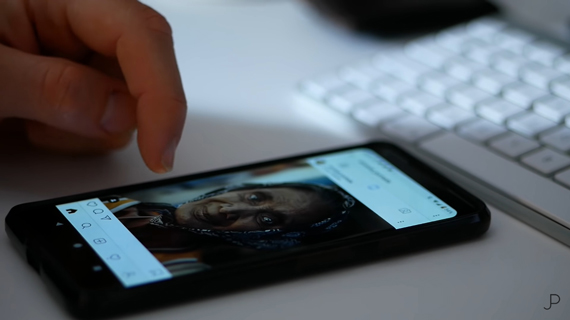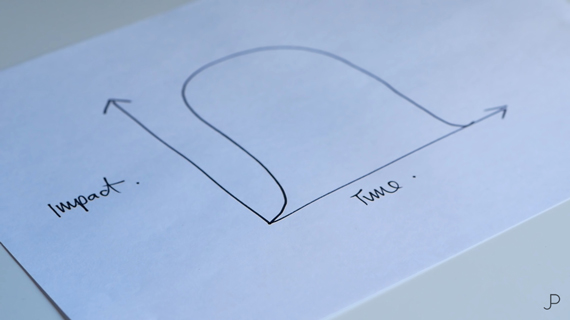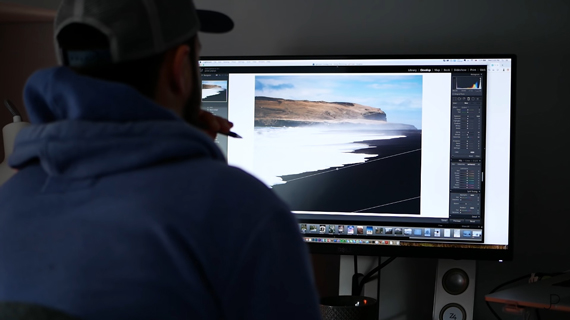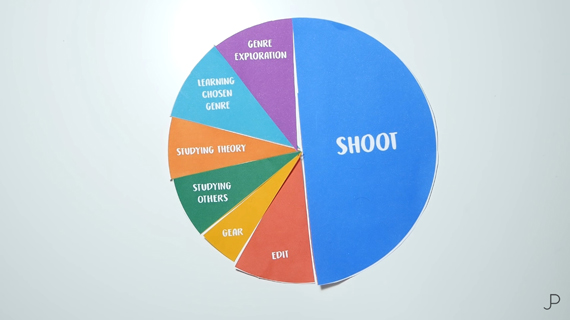Like any form of art, photography is something that you can’t master overnight. It is indeed a real challenge to become good at photography, and it definitely requires persistence. Photographer James Popsys discusses how you can invest your time to master photography in 10,000 hours:

Yes, 10,000 hours is a lot of time. There’s no need to be scared of this number. Just try to understand the gist of what Popsys has to share and plan to invest your time and resources accordingly.
Genre Exploration
“Genre exploration is something that I’ve put about ten percent of importance of the whole pie. That’s about 1,000 hours.”
If you look at the history of photography, you’ll notice that great photographers were well-known for shooting particular types of photos. They did excellent jobs within a certain genre, be it landscape, people, street, etc. Have you ever wondered why?
“You need to become acquainted and comfortable in a particular environment before you can really hope to start taking good photos of it.”
When starting out, it is quite common for you to take photographs of varied subjects. But as time goes on, you will notice that you enjoy taking certain types of photos. It’s essential that you identify your genre of interest and dedicate yourself to it.
“The quicker you can pin down what interests you to photograph, the quicker you’ll get to a point where you’re taking incredible photos of that subject.”
Learning Chosen Genre
Once you’ve narrowed down what genre of photography you want to go ahead with, your next step should be to learn about that particular genre. Be sure not to limit the concept of learning to just photography skills. Dive into learning the soft skills associated with that particular genre of photography as well. This can involve things like building contacts, developing networks, learning to read maps, getting acquainted with the conditions that the genre may require you shoot in, and so on.
“Learning how to operate in your genre is a huge piece of the puzzle and again ten percent or a thousand hours.”
Studying Theory
Theories are the backbone of every great achievement. Having a good understanding of theory can definitely make your images stand out from the crowd. Try to understand what looks pleasing to the human eye and learn how to create such images.
“Put about 750 hours, or 7.5% of the pie, in studying theories.”
Studying Others
Seeing how others work is great inspiration. When looking at how others work, analyze what makes their work look good and what doesn’t work out well. Put whatever works best into practice and you’ll be on the way to taking better photos.
One thing to be careful of here is that you can spend too much time studying others and theories. While this has a greater yield in the beginning, investing too much time will begin to provide lesser returns.
“If you spend too much time looking at other people’s work, it can end up clouding your own creative vision. You can then end up just kind of copying others’ photos and locations.”
Gear
Opposed to what beginner photographers might think, gear is the smallest piece of the pie. Popsys allocated just five percent, or 500 hours, to gear.
“Finding gear that you feel confident with that can capture what you want to capture is vital.”
But be extra careful of spending too much of your time thinking about gear. It’s a trap that many photographers tend to fall into. Do your research and get the camera body, the lenses, and the lighting equipment that’ll serve your purpose. Read the manual and learn how to use your gear properly.
Editing
“Editing is a massive part of digital photography and it can really help make good photos great.”
Once you’re familiar with editing, you know beforehand what kind of photos you can get from a particular scene. And like photography style, your editing style too can be a signature style. This can set your images apart from the rest.
Popsys feels that you should spend ten percent of the pie, that’s another 1,000 hours, in learning to edit your photos properly.
Shooting
If you sum up, we’ve covered half of the pie. The other half is all about shooting. Nothing that we’ve discussed up to this point matters unless you grab your camera and go out to photograph.
If you’re feeling stuck with photography, put an effort into investing your time and resources in the right places.
Like This Article?
Don't Miss The Next One!
Join over 100,000 photographers of all experience levels who receive our free photography tips and articles to stay current:











Leave a Reply